10 myths and prejudices about the Regatta
Were elephants and dromedaries once part of the opening procession? Does sailing on the University Park Lake make you sick? And are the gardeners tired of the Regatta? Myths and prejudices abound when it comes to the 34-year-old tradition in the University Park. Omnibus has set out to prove, or disprove, ten of them.
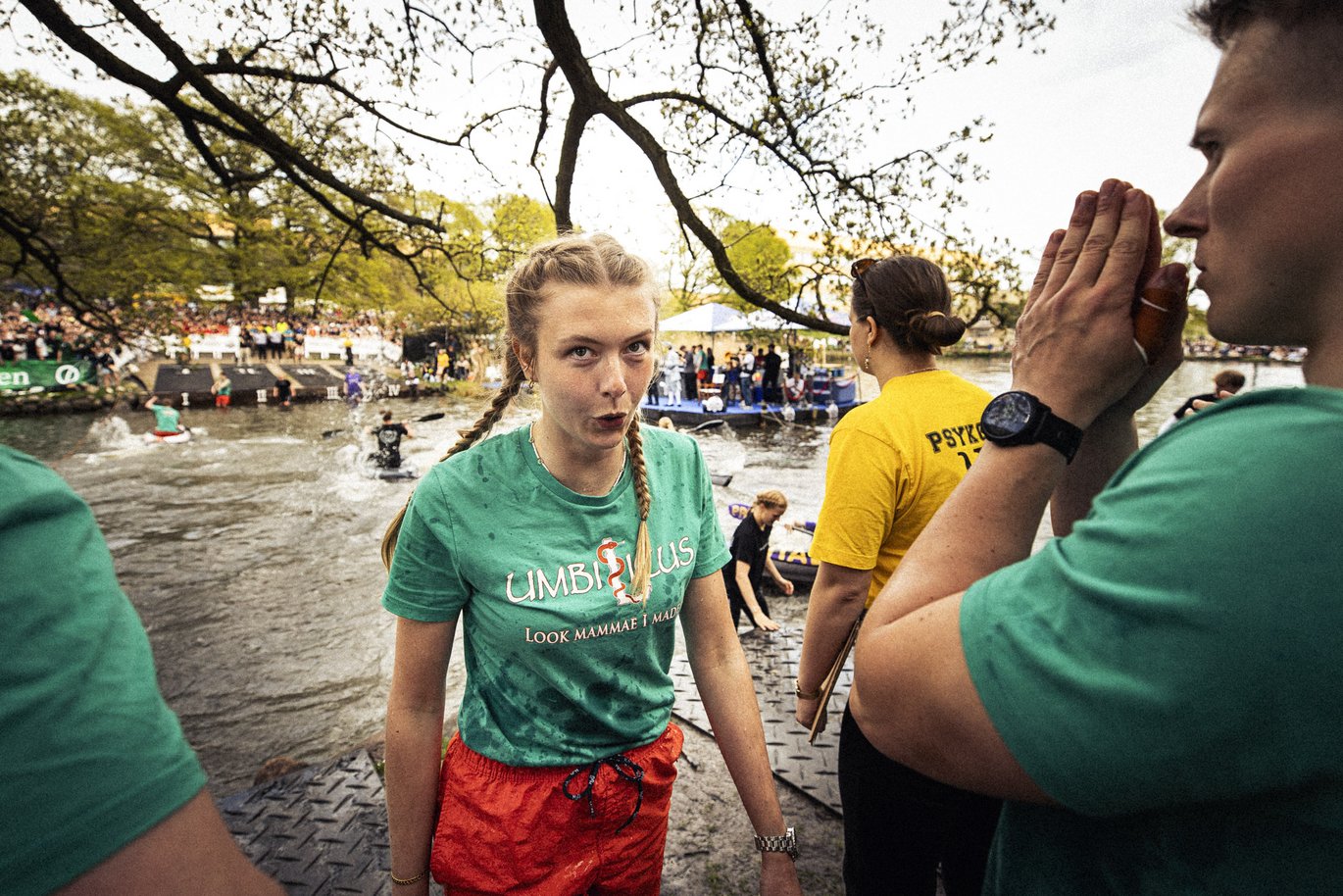
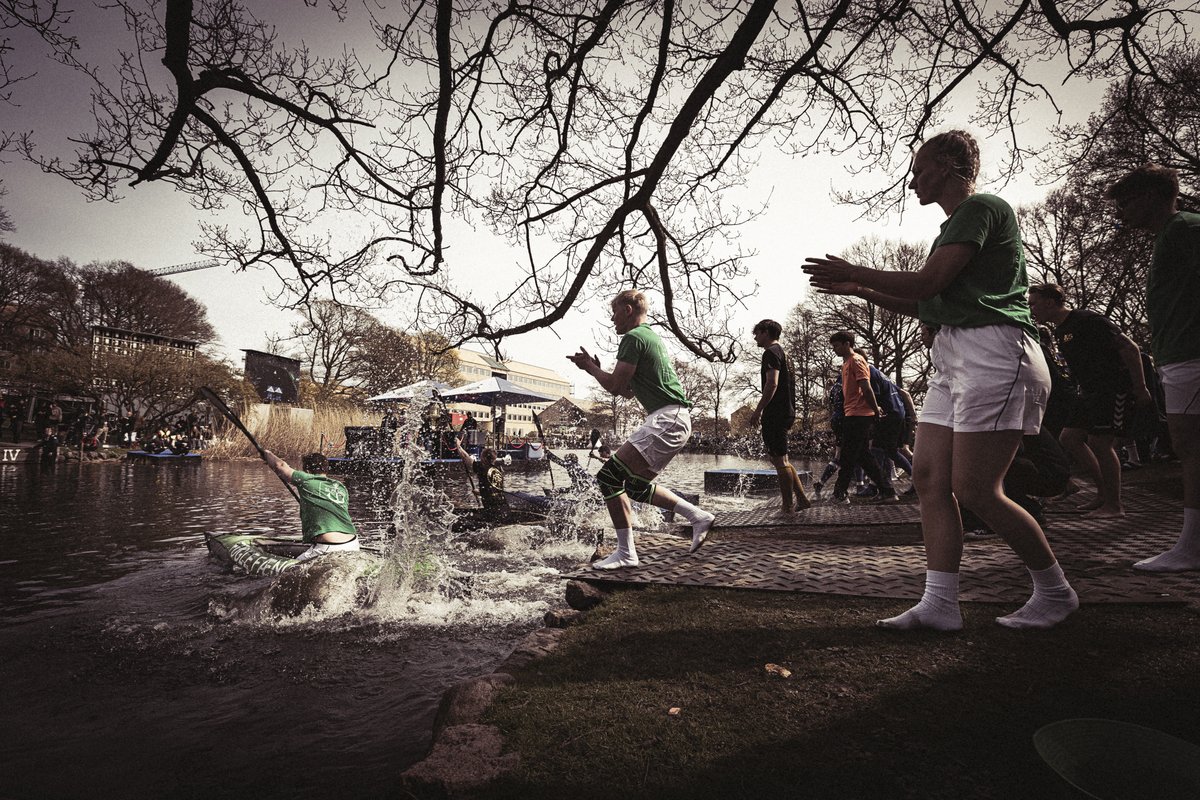
WELLLL: To find answers, we asked those who have experienced it first-hand: the sailors. Of the 12 committees that are racing in this year's Regatta, nine of them have responded to Omnibus' request.
Seven of the associations emphasise that they have experienced illness to some degree, but none of them will confirm or deny that it is directly due to the water quality in the lake. On the contrary, both Apollonia (dental students' party committee) and Beerceps Maximus (sports science party committee) report that they have not experienced any illness during the training period. Several of the committees also point out that you are more likely to get sick from being wet and cold on the shore than from the water itself.


YES: Over the years, many remarkable props have been used in the traditional Regatta opening procession, and many of them would, in hindsight, probably be labelled as "it was a different time." But especially two props stand out – both in literal size, but also in WTF effect. At the 2002 Regatta, a real elephant was used at the opening procession, and just a few years later, the Regatta featured another exotic mammal; nothing less than a dromedary.

NOT AT ALL: Before, during, and after the Regatta, the lawn is one of the most talked-about and most enduring features of the University Park. Whether it's also the most talked-about topic at the gardeners' lunch table is something best left to the gardeners themselves to confirm. To Omnibus, team leader of the Parks and Gardens Section, Stefan Boldsen Hansen, replies that it's true that the Regatta is hard on the grass, but that doesn't mean they're frustrated; the answer is actually quite the opposite:
"We spend a lot of time afterwards restoring the grass with plugs, top dressing and new grass seeds. It's a job we enjoy doing because there has to be room for everyone. It's nice that the park is being used – that's the park's purpose. There's not much point in having a park if no one is using it," says Stefan Boldsen Hansen and highlights the good cooperation between the Regatta organisers and the rest of AU.
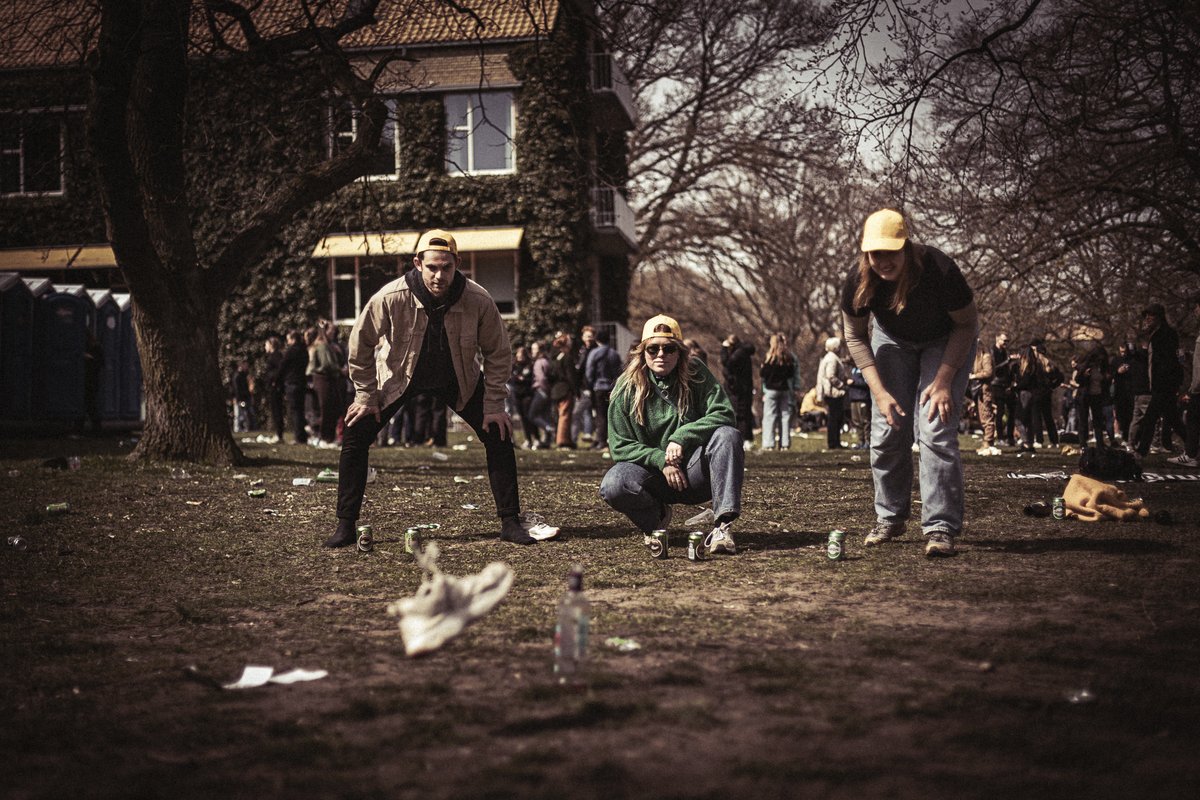
NO: The Regatta has been up for discussion several times, both in terms of its size, the noise, the mess it creates, and not least, how the event interferes with teaching to the detriment of students, timetable planners and teachers.
An obvious solution to the latter would be to move the event to a day off to avoid affecting classes. This idea was also discussed by the senior management team during a meeting in the autumn of 2022. However, the team found that the Regatta should remain on a regular Friday, arguing that “holding the Regatta on a day off might pose too great a risk due to the expected number of spectators”, as noted in the meeting minutes.

SOME DO - BUT NOT ALL: The Regatta isn't just about who is the fastest at drinking, spinning and sailing. In addition to the duel on the water, there is also a battle on land to see who can produce the best banger for the Soundbox. To win this contest, committees spend a lot of resources producing their song, and sometimes also a music video.
Omnibus contacted the 12 organisations to find out how much they spent on the famous tradition in 2025. Four organisations have disclosed their expenses, while the remaining eight organisations either did not want to disclose or did not respond to the request.
Among the four organisations, there is a big difference in how much money has been spent on producing the song of the year. The Politological Society (political science) is the biggest spender and claims that they spend on the good side of a five-digit amount. At the other end of the scale, FUT (the engineers) report that they have some great people in the organisation and use a tidy sum of DKK 0. Right in the middle is Apollonia (dentists) and Profus (VIA Campus C), who spend a four-digit amount, around DKK 5,000.

YES: The Regatta is often described as "the biggest student event in Northern Europe". This is according to DR in its coverage of the 2024 Regatta, Aarhus University on its website and the organisers of this year's event on Facebook. To get to the bottom of this claim, Omnibus has reviewed similar student events at universities in Denmark, Norway, Sweden, Finland, Iceland, the Faroe Islands, Estonia, Latvia and Lithuania.
Several universities in Sweden host their own regattas, including the well-known rivalry between Uppsala and Lund. In addition, Uppsala University and Linköping University take turns organising a biennial student band festival, which closely resembles a carnival. Around 10,000 students gather here and walk through the host city. In Denmark, the University of Copenhagen has a festival that attracts up to 16,000 students and staff.
What all these events have in common is that none seem to quite measure up to the AU Regatta and the 30,000 students in attendance. However, it is worth noting that this figure is also based on an estimate.
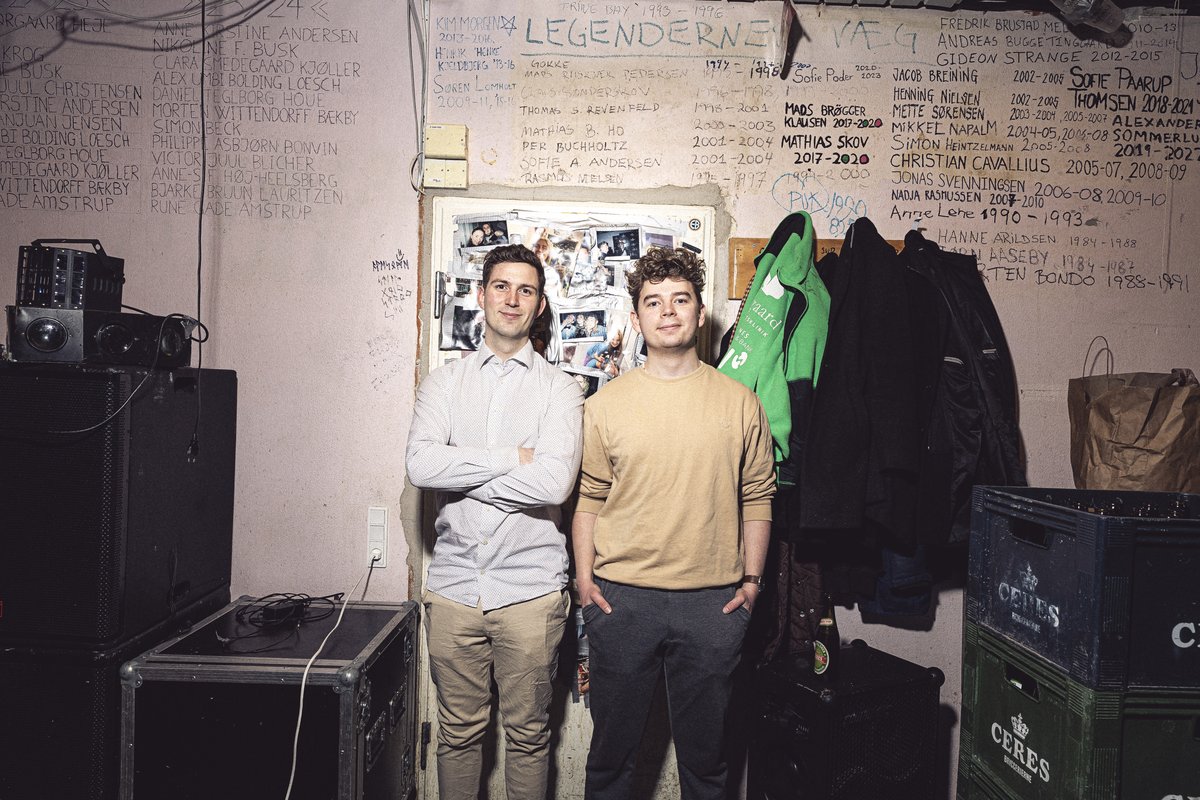
NO: The Regatta is an extensive event to organise, requiring long working days with countless emails and calls. Therefore, it's a classic assumption that organisers need to take leave or postpone courses to make ends meet.
This year’s organisers Alex Umbi Bolding Loesch and Bjarke Bruun Lauritzen from the Umbilicus Executive Committee told Omnibus that they are both studying full-time alongside their roles as organisers. Previous organisers have also stated that it is not necessary to take leave.

YES: The big question that rises for many students each year is: At what time should I go to the Regatta? Here, the need for a good night's sleep must be weighed against the importance of a good spot with a good view of the race.
If you really want a good spot by the lake, you need to be there at 3 o’clock in the night. Several of the committees, including SL (Studenterlauget), FUT (Engineers' party committee), JUS (Law party committee), PF (Politological Society), UMBI (Medical Friday Bar), recommend this by setting it as the start time for their Facebook events for the event. Anecdotal evidence from Omnibus' own reporters in the field at previous races also shows this. But if you're happy with a spot further back on the grass, there’s no need to set the alarm clock quite as early. Last year, the organisers even encouraged people not to enter the park too early in the night.
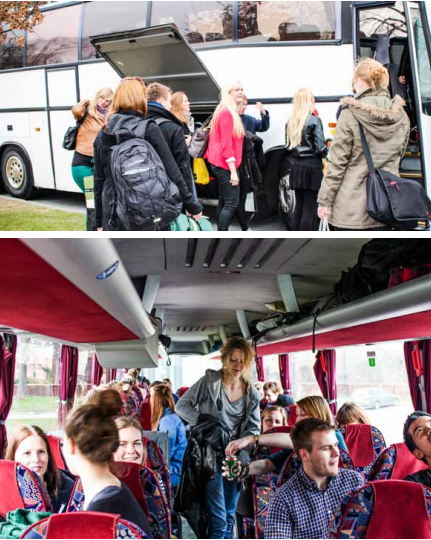
YES: The Regatta is undoubtedly in demand, with many students turning up at night and paying to attend some of the many after-parties. But in connection with the 2014 Regatta, it wasn't the students themselves who had to dig into their pockets, but the Danish School of Education in Emdrup. Here, DPU financed the DKK 20,000 that two buses packed with more than 70 students from Emdrup cost. This was based on extensive preparatory work carried out by the Student Council.
YES: The University Park is definitely not a sight for sore eyes when the thousands of students have finished cheering and drinking. The grass (or the sad remains of it) is covered in discarded camping chairs, empty beer cans and nicotine pouches. So, you might be tempted to think that a helping hand might be needed when the party is over. But you'd be wrong if you ask the organisers of 2023:
"It wouldn't make sense to coordinate a clean-up with 30,000 people. It will just make everything more difficult because people have to get out of the park and we are an insane amount of people. Plenty of passionate people are eager to help bring the Regatta to life – and stick around to clean up afterwards. Because of this, we can have the structure where the few clean up after the many. We are happy to do it," organiser Lasse Juul Christensen told Omnibus.
This text is machine translated and post-edited by Cecillia Jensen.

